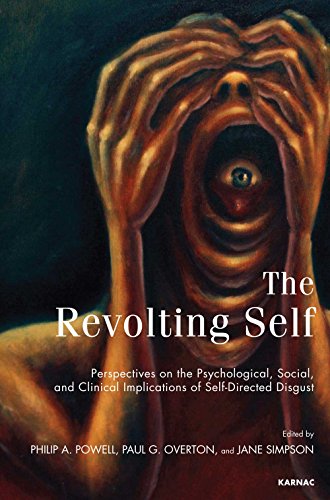The Revolting Self: Perspectives on the Psychological, Social, and Clinical Implications of Self-Directed Disgust

Book Details
- Publisher : Routledge
- Published : 2015
- Cover : Paperback
- Pages : 368
- Category :
Clinical Psychology - Catalogue No : 33987
- ISBN 13 : 9781782200086
- ISBN 10 : 1782200088
Reviews and Endorsements
‘This authoritative book provides the reader with a comprehensive overview of the current state of theory and research on self-disgust. This is a topic of great importance for psychopathology that has just begun to stimulate significant research interest. In addition to consideration of an evolving theoretical formulation, the book’s key strength is that it offers the reader a transdiagnostic framework for conceptualising how self-disgust may be observed across various disorders. The editors have assembled a stellar group of contributors who offer unique perspectives on the revolting self. This book will be an important resource for scientists or students who want to gain a better understanding of the many ways that experiencing disgust may contribute to psychiatric disorders.’
— Bunmi O. Olatunji, PhD, Department of Psychology, Vanderbilt University, USA
‘Our emotions, especially our social or self-referential emotions, are of great importance for our lives: they guide us on our long and uncertain journey in a world mainly determined by the behaviour of other people. In order to effectively navigate under these conditions, our emotional dispositions need social programming. We have to acquire and to calibrate affective schemas that allow for culturally acceptable and intelligible ways of establishing an “emotional self”. In comes the concept of “self-directed disgust”. This describes how an emotional core-process is socially transformed in order to balance our selves between self-expansion and self-regression. Too little self-disgust may lead to exorbitance, impertinence, and social ostracism; too much strangles the development of a viable self and ends up in chronic psychopathology. I hope that clinical research on this subject will help us to develop more effective psychotherapeutic strategies. Meanwhile, I welcome the first volume on the topic. The Revolting Self is a timely and very interesting read that should find a big audience.’
— Markus R. Pawelzik, MD, Medical Director, EOS-Klinik, Münster, Germany
‘Disgust is considered to be one of the most basic of emotions, and our experience of it nearly ubiquitous. Beyond revulsion against disease and contamination from physical threats, much work in recent decades has helped clarify disgust’s role as a complex socio-moral emotion. This exciting volume advances our understanding by exploring when we turn our disgust inward, towards our very selves. With ample evidence and thought-provoking theorising, the chapters here first and foremost put to rest the longdebated question of whether self-disgust can be said to exist as an emotional experience. The authors promote disgust towards the self to its rightful place alongside, yet distinct from, other evaluative and self-conscious emotions like shame, guilt, and anger, and demonstrate myriad significant health consequences of self-disgust across domains and populations. This rich collection is sure to enhance the scholarship, teaching, and practice
of a great many of us working in the psychology and philosophy of emotions.’
— Tomi-Ann Roberts, PhD, Chair, Department of Psychology, Colorado College, USA

